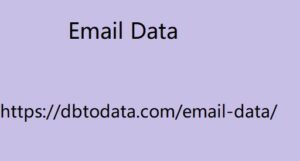|
|
Different points must be taken into account: , particularly in terms of collecting and monitoring consents and objections. The use of Google Analytics is used to measure traffic and work on the ergonomics of the site. In other situations, browsing data is used for the purpose of personalizing advertising campaigns, for example using Google advertising tools.
Finally, Google uses the data for its own purposes. When Email Data changing tool settings is not enough Following this situation, many people have tried to identify parameters and technical measures that would make it possible to continue using Google Analytics while respecting the privacy of Internet users. Moreover, simply modifying the design of the conditions for managing IP addresses is not sufficient to meet the requirements of the ECJ , especially as the transfer to the United States continues.

So, another common idea is to use encryption of Google Analytics-generated IDs , or replace them with IDs generated by the site operator. In practice, however, it offers little or no additional guarantees against possible re-identification of data subjects, mainly due to the ongoing processing of IP addresses by Google. The underlying problem that prevents these measures from solving the problem of data access by non-EU authorities is direct contact via HTTPS connections between personal terminals and servers controlled by Google.am .
|
|